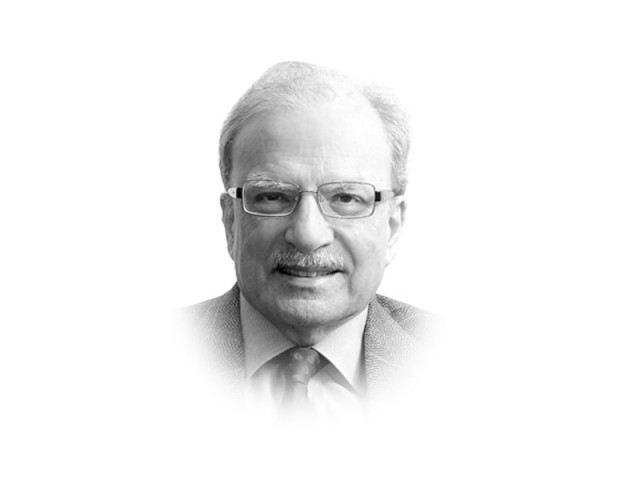State’s role in managing the economy
Thatcherism and Reaganism brought about ‘globalisation’

The writer is a former caretaker finance minister and served as vice-president at the World Bank
The state apparatus put together by Nehru and his associates came to be called the “Licence Raj.” Nothing moved in the formal sector of the economy without the sanction of the government. Thus shackled, private enterprise did little to invest and innovate. The result was what the Indian economists called the “Hindu rate of growth.” That rate was around three to three-and-a-half per cent increase a year in the gross national product, not enough to deal with the poorer segments of the population — the ‘bottom 40 per cent.’
The Soviet state was suffocated under its own weight. It collapsed in 1991, exactly at the time when India, faced with its own economic problems, dismantled the Licence Raj and released the private sector. The result was a doubling in the rate of economic growth.
The architects of the “freeing of the Indian economy” were, no doubt, influenced by the rise of Thatcherism and Reaganism in Britain and the United States. These movements not only freed domestic economies, but also removed many constraints on the movement of goods, commodities and capital across national frontiers. The result was “globalisation.” In some parts of the world, globalisation also allowed the movement of people across borders. This was the case in Europe. The fear of being overwhelmed by migrants who were taking low-paying jobs that hurt poor wage earners persuaded those affected to campaign for the exit of Britain from Europe.
But this frustration was not limited to Britain. Across the Atlantic, there was a large group of people who were unhappy with their economic situation. Unlike the traditional supporters of the Republican Party, this group of voters did not want a small government but a government that worked for them, providing them with support in several areas. This group had four specific demands: the state should provide them with help if they were unemployed or not earning enough to meet their essential needs, the government should ensure them access to publicly-funded healthcare, the state should limit, perhaps even ban, the arrival of immigrants who will take their jobs, and the government should put in place policies that would discourage firms to move their operations to the places that had an abundant supply of low-wage workers. Sensing an opportunity for his political advance, Donald Trump made these four demands the main planks of his platform.
As Eduardo Porter, a commentator on economic issues, noted: “These frustrated Americans may not fully realise it … But there’s a strong case for more government — not less — as the most promising way to improve the nation’s standard of living.” Several academics have also come to the same conclusion. In a book published in July this year, Jon Bakija, Lane Kenworthy and Peter Lindert made the case for a large, not a small government.
The strategy proposed by theses authors has a number of components. These include improving the economy’s productivity, increasing worker’s economic security, investing in education to close the opportunity deficit of low-income families, and ensuring that more backward areas obtain a larger share of the rewards of economic growth. The scholars propose raising government spending in the United States by ten percentage points of the gross domestic product. This is the proportion that countries such as Britain, Germany, and Norway spend. Compared with the United States, the Europeans have lower poverty rates, lower income inequality, longer life spans, and lower rates of preventable deaths. But this approach implies a major tax effort aimed at getting more from the well-to-do. This is where politics enters the picture. Most liberal democracies have managed to get these systems going but those that are struggling to move in that direction have struggled to put such systems in place and that includes Pakistan.
Published in The Express Tribune, August 8th, 2016.
Like Opinion & Editorial on Facebook, follow @ETOpEd on Twitter to receive all updates on all our daily pieces.














COMMENTS
Comments are moderated and generally will be posted if they are on-topic and not abusive.
For more information, please see our Comments FAQ